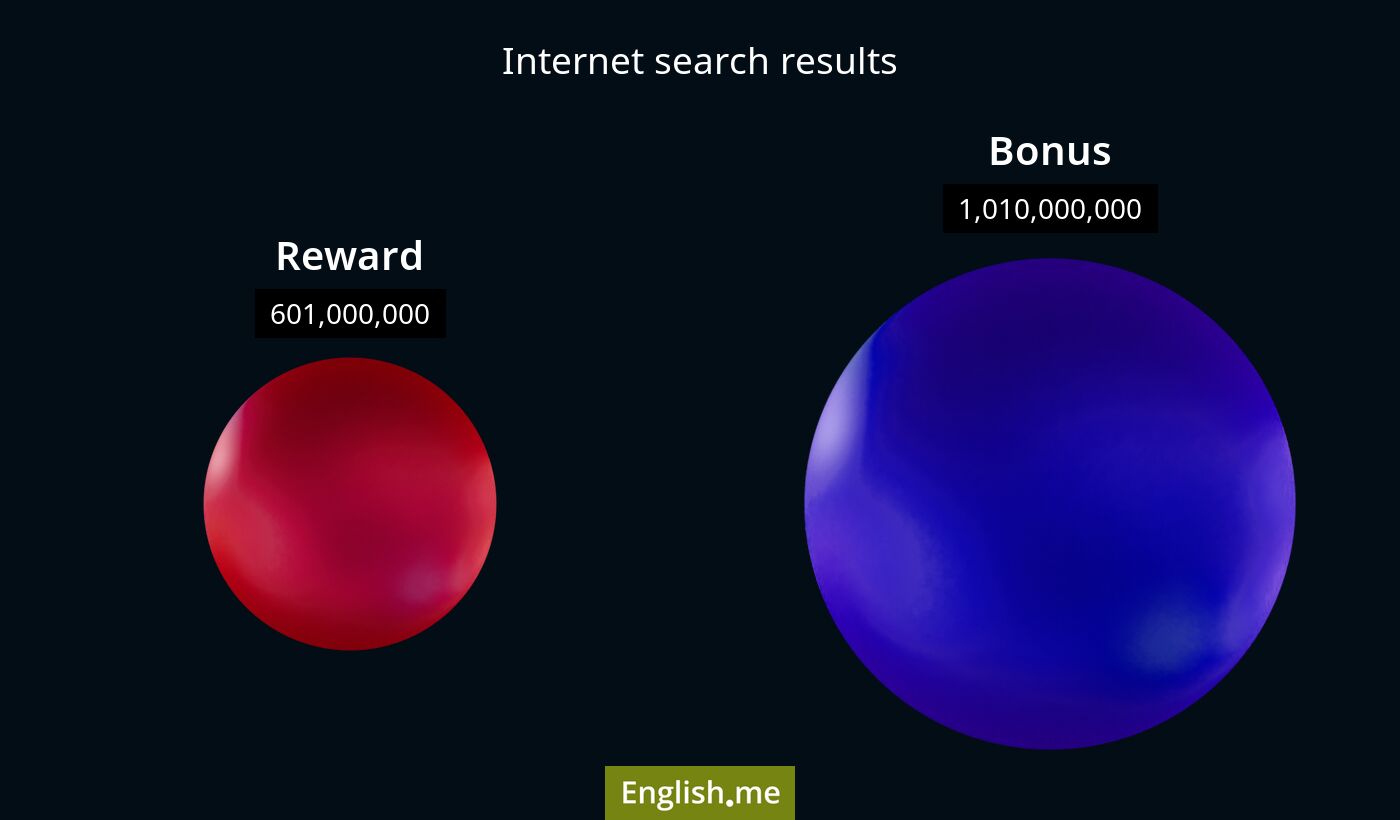"Reward" vs. "bonus": comparing motivational tools
Reviewed and edited by  Anwar Kareem 23/10/2024, 03:50
Anwar Kareem 23/10/2024, 03:50
English.me team member

 What is similar?
What is similar?
Both "reward" and "bonus" refer to something given in recognition of effort, performance, or service, often as a form of encouragement or compensation.
 What is different?
What is different?
"Reward" is a broader term that can refer to any recognition for effort, good behavior, or achievement, not necessarily tied to financial incentives. "Bonus", on the other hand, is often used within business contexts to denote additional financial compensation provided on top of a regular salary or wage.
 Which one is more common?
Which one is more common?

 Examples of usage
Examples of usage
Reward- She received a reward for returning the lost dog to its owner.
- The company's CEO offered a reward for the most innovative project proposal.
- In ancient times, heroes were often given rewards by kings for their bravery.
- Employees received a bonus at the end of the year for their hard work.
- Signing up with the new service gives you a bonus of 1000 points.
- The salesperson was thrilled to earn a bonus on top of their regular commission.

 English
English español
español française
française italiano
italiano deutsche
deutsche 日本語
日本語 polski
polski česky
česky svenska
svenska Türkçe
Türkçe Nederlands
Nederlands